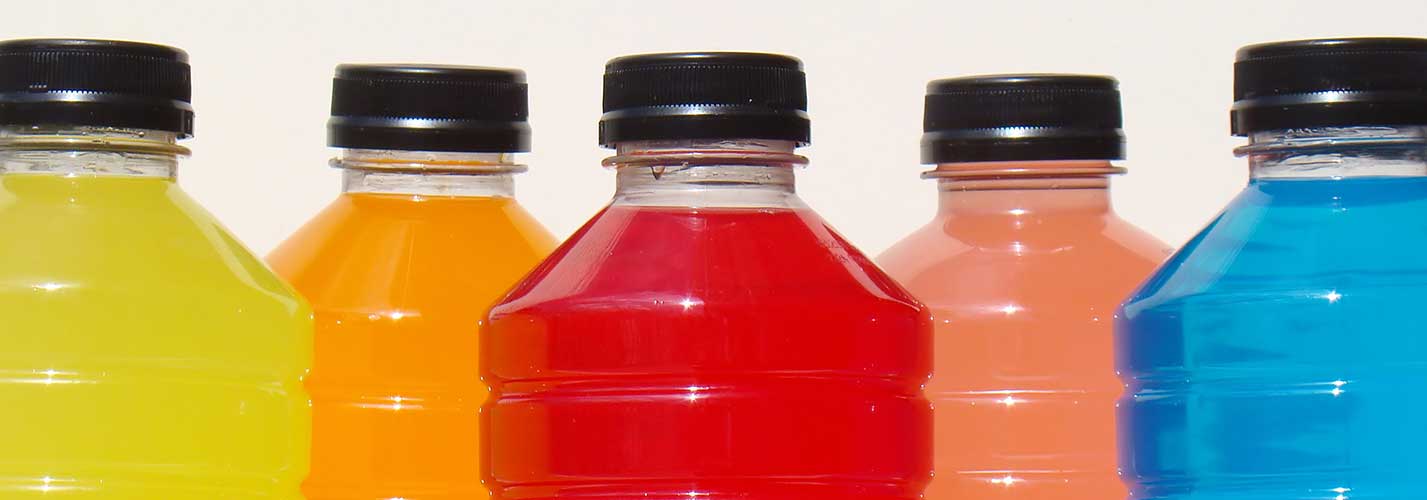
by admin | Sep 5, 2016 | Articles
Are Athletes Drinking Too Much Water? Do you spend hours in the gym or training for a sport? Are you struggling to drink more water? If you’re already well hydrated, it’s no need for extra fluids. Drinking too much water is just as dangerous as not drinking enough. Yet, most people drink beyond thirst during exercise in order to meet their daily fluid requirements. How Much Water Is Too Much? Water makes up about 70 percent of the human body. Every tissue needs this fluid to survive. Every day, you lose water through sweat, urine, breathing, and other bodily functions. Thus, it’s essential to replace lost fluids and stay hydrated. Even the slightest dehydration can lead to fatigue, decreased athletic performance, brain fog, headaches, arrhythmia, fainting, and difficulty breathing. The minimum recommended intake of water is two and a half liters or eight glasses a day. The more active you are, the more water you should drink, at least in theory. The truth is that fluid requirements vary from one person to another. Contrary to popular belief, it’s unneccesary to drink water all day long to prevent dehydration. This can actually negativity affect your health, leading to hyponatremia or water intoxication. Drinking too much water dilutes the sodium content of your blood, causing muscle spasms, cramping, irritability, low energy, tiredness, nausea, and vomiting. In severe cases, it may lead to seizures, coma, and even death. Hyponatremia is common among athletes and individuals engaged in high-intensity activities, such as marathons and triathlons. Certain medications, such as antidepressants and pain relievers, increase the risk too. Depending on its severity, this condition...

by admin | May 17, 2014 | Articles
Meeting the Sports Nutrition Needs of Young Athletes As if trying to feed teenagers a nutritious diet wasn’t difficult enough at times, taking care of your adolescent athlete can be even more of a challenge. Not to mention that as the parent of an athlete, you’re busy. In addition to driving your athlete to practices and games, you’re stocking up at the grocery store to try to keep up with their appetite. Proper nutrition is imperative for optimal growth and peak performance in adolescents. Unfortunately, most American youth today do not meet the minimum recommended amount of fruits, vegetables, or whole grains, and most go far beyond the recommended daily intake of sodium. On average U.S. teenagers consume more soda than milk or other healthful beverages. How is your teenager doing, and what is it they need? Nutrition and Competition It is without a doubt that what young athletes eat potentially affects their health as well as their performance skills in the sport. If they eat a poor diet, they not only risk illness but also their ability to best train and compete. Eating the right foods and drinking plenty of fluids before, during and after each training session ultimately helps young athletes perform better, have reduced fatigue and additionally, helps prevent them from getting ill. Providing sufficient fuel for muscles, maintaining adequate hydration, and promoting post-exercise body recovery can be achieved best by considering these three distinct phases: before, during and after training. Before training It is critical that young athletes begin each training session with energy stacked to the brim and hydrated properly. This will provide them with...
by admin | May 10, 2014 | Articles, Uncategorized
These topics from The Educated Sports Parent on health and training can help your child have a safe youth sports experience. Performance-Enhancing Supplements Youth Strength Training Athlete Burnout Females and the Importance of Nutrition: The Female Athlete Triad Overuse Injuries Sports Nutrition For Young...
by admin | May 10, 2014 | Articles, Uncategorized
Winning does not just mean being ahead in the score column when the whistle blows. Check out the following articles on how you can help your kids be winners at sports! What Kids Want Winning – It’s All Relative Awards: To Give or Not to Give? That is the Question Competition v....
by admin | May 10, 2014 | Articles, Uncategorized
Participation Benefits of Youth Sports A professor of mine once asked us to ponder the question, “Does sport build character or characters?” The answer is – it depends upon the program and largely upon the coach. Unfortunately, it seems that many parents all over the US have blindly accepted this widely propagated assumption that sport builds character, offering their precious, impressionable offspring at younger and younger ages, season after season, to the system that is supposed to teach cooperation, discipline, sportsmanship and social skills. This unquestioning faith we seem to have put in our youth sports system may be doing our youngsters more harm than good. It is important that we examine the youth sports programs in which our children participate and identify the benefits and the risks of participation in those programs. We can then come up with strategies to extinguish policies and procedures that are not beneficial and discover how to accentuate the benefits of sport participation. So what are the good parts? When youth sports programs are run with the needs and best interests of the participants in mind, there are many potential positive outcomes. Here is a list of a few: Youth sports can be a fun and enjoyable experience for all involved. Surveys have shown that having fun is a primary reason why children are motivated to participate in sports (1). Sports provide an arena for youth to be physically active (2, 3). We are all probably well aware of the obesity epidemic occurring today and the need to emphasize health and fitness in children. Studies have found that children who play sports spend...




